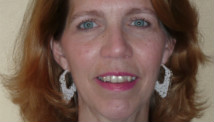AMMAN (Reuters) - Having seen its star wane in Iraq, al Qaeda has staged a comeback in neighbouring Syria, posing a dilemma for the opposition fighting to remove President Bashar al-Assad and making the West balk at military backing for the revolt.
The rise of al Qaeda's affiliate in Syria, al-Nusra Front, which the United States designated a terrorist organisation last week, could usher in a long and deadly confrontation with the West, and perhaps Israel.
Inside Syria, the group is exploiting a widening sectarian rift to recruit Sunnis who saw themselves as disenfranchised by Assad's Alawite minority, an offshoot of Shi'ite Islam that dominates Syria's power and security structures.
Al-Nusra appears to have gained popularity in a country that has turned more religious as the uprising, mainly among Sunni Muslims, has been met with increasing force by authorities.
It has claimed responsibility for spectacular and deadly bombings in Damascus and Aleppo, and its fighters have joined other rebel brigades in attacks on Assad's forces.
According to Site Intelligence group, Nusra claimed responsibility in one day alone last month for 45 attacks in Damascus, Deraa, Hama and Homs provinces that reportedly killed dozens, including 60 in a single suicide bombing.
"In 18 communiqués issued on jihadist forums ... most of which contain pictures of the attacks, the al-Nusra Front claimed ambushes, assassinations, bombings and raids against Syrian security forces and 'shabbiha', pro-Bashar al-Assad thugs," Site said.
REVIVING THE CALIPHATE
Members of the group interviewed by Reuters say al-Nusra aims to revive the Islamic Caliphate, which dates back to the Prophet Mohammad's seventh century companions, forerunners of the large empire that once stretched into Europe.
That prospect alarms many in Syria, from minority Christians, Alawites and Shi'ites to traditionally conservative but tolerant Sunni Muslims who are concerned that al-Nusra would try to impose Taliban-style rule.
Fear of religion-based repression has already prompted Kurds to barricade their quarter of Aleppo city and was behind fierce clashes between Kurdish and al-Nusra fighters in the border town of Ras al Ain in November.
The ideas of al-Nusra are also at odds with a new Syrian opposition coalition that was recognized last week by dozens of countries as an alternative to Assad and is committed to establishing a democratic alternative to Assad's rule.
Omar, a 25-year-old university graduate and former army conscript, said he deserted and joined al-Nusra in reaction to repression he experienced as a Sunni from Alawite officers who all but monopolize the army's higher echelons.
Prior to the revolt, Omar said he had sympathized quietly with Hizb ut-Tahrir, an Islamic international party with a vision for the restoration of the Islamic caliphate abolished by the secular Turkish strongman Mustafa Kemal Ataturk in 1924.
"Prayer in the army is banned, and if they suspected that you pray they would send you to the most remote posts," Omar said by phone from a rural area near Aleppo city.
"Our aim is to depose Assad, defend our people against the military crackdown and build the caliphate. Many in the Free Syrian Army have ideas like us and want an Islamic state."
"We and other Islamists have gained a reputation as being able to hold our own in battle. Lots of people want to join Nusra, but we do not have enough weapons to supply all of them."
But a woman teacher, who lives in the central Mogambo district of Aleppo, said Nusra's thinking was abhorrent.
"Al-Nusra thinks that by shouting Allahu Akbar (God is Greatest) they can justify anything they do. We did not rise up to move from the humiliation from being under Assad to the humiliation of being under al Qaeda," she said.
NUSRA ATTACKS
Opposition sources said many Syrians who facilitated the transfer of jihadis from Syria to al Qaeda in Iraq at the height of its campaign against U.S. forces there were now fighting for Nusra, while jihadis in Iraq had reversed their roles, arranging for transfer of personnel and bomb-making know-how into Syria.
The source of Nusra funding is unclear, though that, too, may come from Iraq.
Ibrahim, another young Nusra member in Idlib province, said he was imprisoned in the notorious Sednaya prison north of Damascus, where 170 mainly Islamist prisoners were killed after the army put down a mutiny in 2007. "We want revenge," he said.
Asked about a U.S. statement that Nusra operations were killing many civilians, Ibrahim said it was an exaggeration.
"A bomb goes off in front of a security compound with four cars full of shabbiha in civilian clothes guarding it. The shabbiha die and state media says they were civilian. Only their clothes are civilian," he said.
Several videos have appeared on the Internet in recent weeks purportedly showing al-Nusra-linked rebels shooting and in some instances beheading captured Assad soldiers.
But al-Nusra still appears to have wide support. Video footage on Friday showed crowds in southern Syria, the birthplace of the revolt, denouncing the U.S. designation of the group as terrorists and shouting "al-Nusra front protects us".
Farouk Tayfour, deputy head of the Muslim Brotherhood, who fought against Assad's father in the 1980s, said it was too early to categories opposition fighters. Some, he said, joined Nusra to defend their homes without subscribing to its ideology.
"NOT A MONOLITHIC GROUP"
The identity of al-Nusra's leadership is not clear. A shadowy figure known as Abu Muhammad al-Golani - whose nationality is not known - has been named by some as the head.
But an Islamist opposition campaigner who toured northern and central Syria a few days ago and met Nusra commanders said the group operates more like an umbrella organisation with little coordination between units in different regions.
"They are not a monolithic group. The nature of Nusra in Damascus is more tolerant than Idlib. They have a real popular base in Idlib, where most Nusra members are Syrians, as opposed to Aleppo and Damascus."
He said it did not appear to be seeking to impose Taliban-style control. "Many rebels I have met say they joined al-Nusra because the group has weapons, mostly seized from raids, and that they will go back home after the revolt," he added.
But many centrist opposition campaigners fear that al-Nusra will turn its guns on any non-Islamist order that could come if Assad was deposed. "The big question is how to contain Nusra in a post-Assad Syria," said an opposition figure linked to jihadist groups, who did not want to be identified.
"Al-Nusra is the type of group that could declare the most pious cleric a heretic and kill him in the middle of a mosque just because he does not share its view," he said.
Nusra members are estimated to number in the thousands and are particularly strong in the northern region of Aleppo and Idlib, where they have joined or carried out joint operations with Islamist groups such as Ahrar al-Sham and Liwa al-Tawhid unit.
In and around Damascus they are fewer in number but remain potent, and are only 20 kilometers (12 miles) at some points from the Golan Heights front with Israel.
Abu Munther, an engineer turned rebel who operates on the southern edge of Damascus and goes to Jordan to meet other rebels, said in Amman that al-Nusra numbered hundreds of people in Damascus, as opposed to thousands in the north.
But those numbers could grow. Al-Mujahideen brigade in the southern Tadamun neighborhood of Damascus declared its allegiance to al-Nusra after dissatisfaction with Arab-backed military groups headed by defector officers.
Another opposition figure, who did not want to be named, said international intelligence agencies were trying to curb Nusra's influence in Damascus and the southern Hauran Plain, where they are near Israel and close to the Jordanian border.
"Western intelligence agencies are realising that the Nusra is the biggest threat in a post-Assad Syria and are devoting more resources to deal with the threat," he said.
"For the first time al Qaeda is within striking distance of Israel," he said. "Many are realising that the best that could be done for now is to contain them in north Syria - even if the area risks becoming an Islamist emirate of sorts - while trying to build a civic form of government in and around Damascus."
(Editing by Will Waterman)


